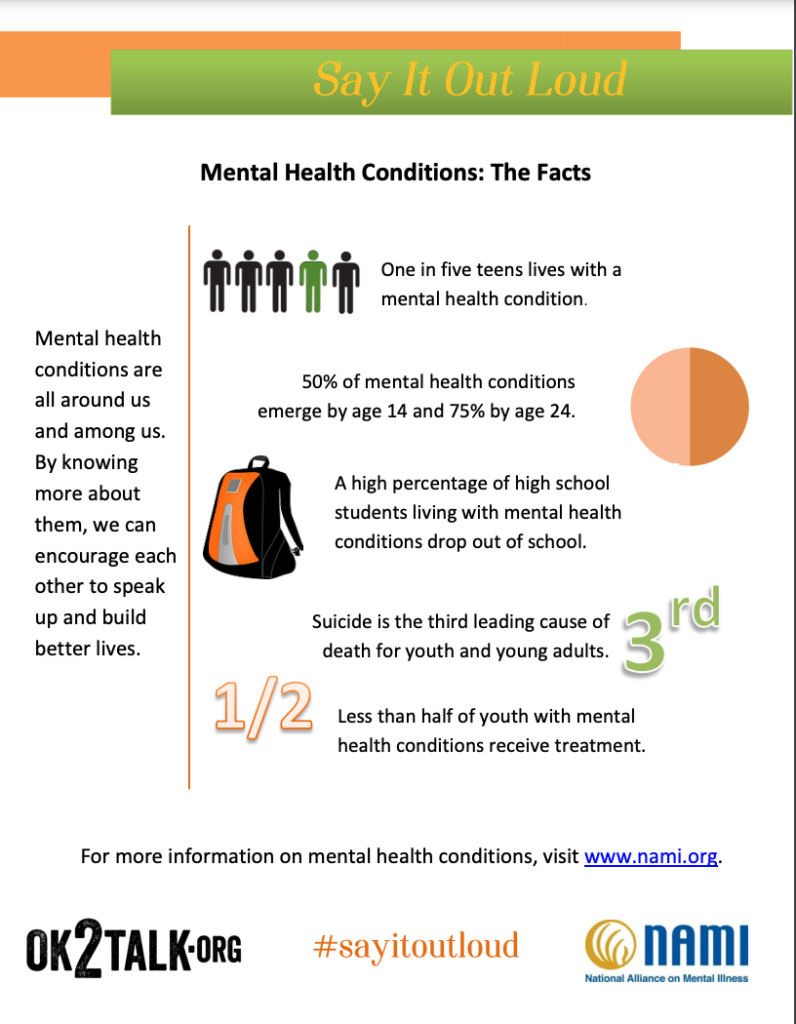
Take our Fact or Fiction Quiz to see if you can tell common misconceptions about mental health apart from contemporary facts in the psychiatric field. You might be surprised!
FACT OR FICTION? Emotional problems are signs of weakness. (click for answer)
FICTION: Emotional problems are part of the human experience. Seeking help when problems become hard to deal with is a sign of strength and common sense. No one should have to €œgo it alone.€
- 1 in 4 people will experience mental illness in any given year.1
- For example, if someone suffering from a mental illness is sitting in a college classroom of 200 students, that means 49 of his/her classmates can relate. And many of the other 150 people would likely feel sympathetic too, as they probably have friends or loved ones in their lives who also have also experienced mental illness.
FACT OR FICTION? Many people have unusual perceptual experiences in their lifetimes. When a person sees something that really isn’t there, s/he is not necessarily losing their mind. (click for answer)
FACT: Many healthy people experience some unusual perceptions at some point in their lives, so it’s not something restricted to mental illness.
- Studies show that anywhere from 8% to 25% of the general population can experience some form of hallucination(s) in their lifetime.2
- Studies also show that 5% to 70% of people can have delusional ideas. 2
Although these experiences are not uncommon in a lifetime, it is important to seek help when these disturbances occur frequently, cause you great stress, and interfere with your daily functioning or wellbeing.
There is a certain threshold of severity that determines if these experiences have developed into an illness or indicate risk for an illness. Only a trained clinician can accurately diagnose and help treat these.
FACT OR FICTION? If someone is determined to be “at risk for psychosis”, it is only a matter of time before they’re fully psychotic. (click for answer)
FICTION: Current studies show that on average, only approximately 29% of those considered €œat risk for psychosis€ actually go on to develop psychosis.3
- Research is still working on ways to prevent psychosis, but many professionals hope that even just knowing that you are at risk could help prevent the development of psychosis.
- Studies performed with at-risk subjects in many different types of clinical treatment, medicated or not, show decreased rates of transitions to psychosis.3
FACT OR FICTION? There are good treatment options available to people with psychosis. (click for answer)
FACT: Psychotic disorders are rapidly becoming more and more treatable as new therapies reach the public. Knowing what treatments to look for might be the first step.
- There are a number of well-established and effective treatments for people with psychosis disorders such as schizophrenia, bipolar disorder, severe forms of major depression.
- The latest mental health research is blossoming with new ways of treating the array of problems people with psychosis face, meaning not just hallucinations or delusions, but also difficulties in thinking, stress management, social obstacles, and medication side effects.4, 9
Click here for a list of empirically supported treatment options from the American Psychological Association (APA).
FACT OR FICTION? Having psychotic symptoms probably means someone has schizophrenia. (click for answer)
FICTION: Psychotic symptoms can occur in the context of a number of medical and mental disorders of which schizophrenia is only one.
- Hallucinations, delusions, and other difficulties with reality-testing may be features of a number of disorders, such as:
- Bipolar Disorder
- Depression with psychotic features
- Schizoaffective Disorder
- Obsessive Compulsive Disorder (OCD)
- Post-Traumatic Stress Disorder10
- Amphetamines, cannabis, cocaine, LSD, opiates, and many other drugs have also been associated with €œsubstance-induced psychosis. They may also trigger the onset of mental illnesses such as schizophrenia.11
- There are possible organic causes of psychotic symptoms11 that may require medical screenings with a primary care physician or a neurologist:
- Temporal Lobe Epilepsy (TLE)
- Malaria
- Syphilis
- Human Immunodeficiency Virus (HIV)
- Many others
FACT OR FICTION? People with schizophrenia have two or more personalities that take them over and have them act completely different from one day to the next. (click for answer)
FICTION: Schizophrenia is NOT characterized by major personality/identity changes, but primarily by hallucinations and/or delusions.10
- A hallucination is seeing, hearing, feeling, or smelling something that is not real. A delusion is deeply held belief that cannot be proven true to reality.
- People with schizophrenia also often experience other difficulties, such as problems with attention, memory, and/or social interest.
FACT OR FICTION? People with mental illnesses are much more dangerous than others. (click for answer)
FICTION: Mass media over-reports and over-portrays violence by people with mental illness in news12 and entertainment13. The vast majority of violent acts in America are committed by mentally “healthy” people.
- Although some studies report a slightly higher risk for violence in some disorders, recent meta-analyses show that this increased risk is overwhelmingly accounted for by drug abuse.14
- In other words, mental illness alone rarely makes a person more violent, but drug abuse often does. To put this in perspective, a similar increase of risk for violence is also seen in healthy people who abuse drugs.
- Writer Vaughan Bell made an interesting comparison in his Slate article, “Crazy Talk” (a title intended to satirize the stigmatizing usage of the word crazy). You are three times more likely to be killed by a lightening strike, already an extremely rare event, than by a random stranger with schizophrenia.15
- Perhaps more worrisome is the fact that people with mental illness are more likely to be victims of violence than perpetrators.14 When mass media tends to portray the opposite of this reality, it represents an unfortunate, stigmatizing misunderstanding of mental illness that hurts more than it helps.
FACT OR FICTION? Mental illness is NOT caused by bad character, poor resilience, or some kind of inherent defectiveness. (click for answer)
FACT: Although it might be easy to think of mental illness as a result of personality or genetic makeup alone, research points to a combination of social, environmental, genetic, and biophysiological risk factors that few of us would have any say in being exposed to.16€“21
- There are a host of genes known to contribute to risk, but no single factor guarantees the development of mental illness.22,23
Sources
- Kessler, R. C., Chiu, W. T., Demler, O., Merikangas, K. R. & Walters, E. E. Prevalence, severity, and comorbidity of 12-month DSM-IV disorders in the National Comorbidity Survey Replication.Arch. Gen. Psychiatry 62, 617€“627 (2005).
- Johns, L. C. & van Os, J. The continuity of psychotic experiences in the general population.Clinical psychology review 21, 1125€“1141 (2001).
- Fusar-Poli, P. et al. Predicting psychosis: meta-analysis of transition outcomes in individuals at high clinical risk. Arch. Gen. Psychiatry 69, 220€“229 (2012).
- Dixon, L. B. et al. The 2009 schizophrenia PORT psychosocial treatment recommendations and summary statements. Schizophr Bull 36, 48€“70 (2010).
- Medalia, A. & Choi, J. Cognitive remediation in schizophrenia. Neuropsychol Rev 19, 353€“364 (2009).
- Pharoah, F., Mari, J., Rathbone, J. & Wong, W. Family intervention for schizophrenia. Cochrane Database Syst Rev (2010).doi:10.1002/14651858.CD000088.pub2
- Moritz, S. & Woodward, T. S. Metacognitive training in schizophrenia: from basic research to knowledge translation and intervention. Current Opinion in Psychiatry 20, 619€“625 (2007).
- Calton, T., Ferriter, M., Huband, N. & Spandler, H. A Systematic Review of the Soteria Paradigm for the Treatment of People Diagnosed With Schizophrenia. Schizophr Bull 34, 181€“192 (2008).
- Beebe, L. H. et al. Effects of exercise on mental and physical health parameters of persons with schizophrenia. Issues in Mental Health Nursing 26, 661€“676 (2005).
- Diagnostic and Statistical Manual of Mental Disorders. (American Psychiatric Association: Washington, DC, 2000).
- Cardinal, R. N. & Bullmore, E. T. The Diagnosis of Psychosis. (Cambridge University Press: Cambridge, UK, 2011).
- Dietrich, S., Heider, D., Matschinger, H. & Angermeyer, M. C. Influence of newspaper reporting on adolescents€™ attitudes toward people with mental illness. Soc Psychiatry Psychiatr Epidemiol41, 318€“322 (2006).
- Hyler, S. E., Gabbard, G. O. & Schneider, I. Homicidal maniacs and narcissistic parasites: Stigmatization of mentally ill persons in the movies. Hospital & Community Psychiatry 42, 1044€“1048 (1991).
- Stuart, H. Violence and mental illness: an overview. World Psychiatry 2, 121€“124 (2003).
- Bell, V. Crazy Talk. Slate (2009).at <http://www.slate.com/articles/ health_and_science/science/2011/01/crazy_talk.html>
- Rutter, M. Psychosocial influences: critiques, findings, and research needs. Dev. Psychopathol.12, 375€“405 (2000).
- Teicher, M., Samson, J., Polcari, A. & McGreenery, C. Sticks, Stones, and Hurtful Words: Relative Effects of Various Forms of Childhood Maltreatment. Am J Psychiatry 163, 993€“1000 (2006).
- Pirkola, S. et al. Childhood adversities as risk factors for adult mental disorders: results from the Health 2000 study. Soc Psychiatry Psychiatr Epidemiol 40, 769€“777 (2005).
- MacMillan, H. L. et al. Childhood abuse and lifetime psychopathology in a community sample.Am J Psychiatry 158, 1878€“1883 (2001).
- Mortensen, P. B. et al. Early infections of Toxoplasma gondii and the later development of schizophrenia. Schizophr Bull 33, 741€“744 (2007).
- Os, J. V. Does the urban environment cause psychosis? BJP 184, 287€“288 (2004).
- Insel, T. R. Psychiatry in the Genomics Era. American Journal of Psychiatry 160, 616€“620 (2003).
- Burmeister, M. Genetics of Psychiatric Disorders: A Primer. Focus 4, 317€“326 (2006).
Last Updated on 2013


